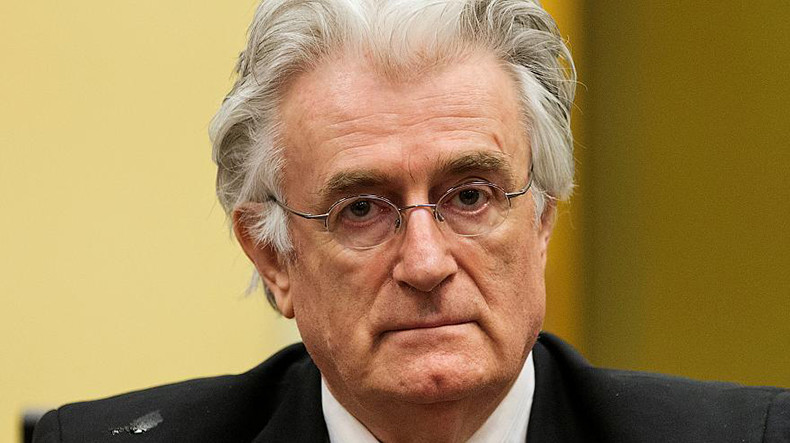
Radovan Karadzic: Ex-Bosnian Serb leader has sentence increased to life in prison
Ex-Bosnian Serb leader Radovan Karadzic has had his sentence for genocide and war crimes increased to life in prison, Euronews reports.
Karadzic was appealing a 2016 verdict in which he was given a 40-year sentence for the Srebrenica massacre in the 1992-95 Bosnian war.
But United Nations appeals judges threw out his request and said his original jail term was too light given the gravity of his crimes and the weight of his responsibility. They extended his sentence to life behind bars.
The court said the 40-year sentence did not reflect the trial chamber's analysis on the "gravity and responsibility for the largest and greatest set of crimes ever attributed to a single person at the ICTY".
Around 100,000 people died and millions were left homeless during the war which resulted in the collapse of former Yugoslavia.
Radovan Karadzic was a former Bosnian Serb politician and convicted war criminal who served as the President of Republika Srpska during the Bosnian War and sought the unification of that entity with Serbia.
Trained as a psychiatrist, he co-founded the Serb Democratic Party in Bosnia and Herzegovina. Karadzic went on the run for 12 years after he was initially indicted and was arrested in 2008 in Belgrade, Serbia.
Karadzic is sometimes referred to in Western media as the "Butcher of Bosnia"
In 2016, he was convicted of genocide for the Srebrenica massacre, which saw more than 8,000 Muslim men and boys killed by Bosnian-Serb forces in July 1995.
He was sentenced to 40 years in prison as the 73-year-old was also found guilty of war crimes and crimes against humanity.
Prosecutors are seeking a life sentence and a second genocide conviction for his alleged role in a policy of targeting non-Serbs across Bosnia in the early years of the war.
He and his lawyers said prosecutors unfairly blackened his name and that Karadzic's words were twisted during the seven-year trial.
The ruling by the judges on Wednesday will be final and can not be appealed. The ruling will end one of the highest profile legal battles stemming from the Balkan wars.
Newsfeed
Videos






























